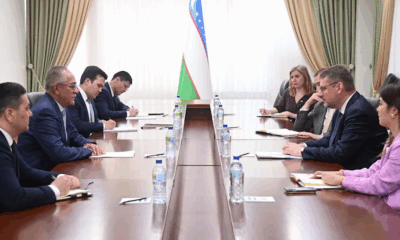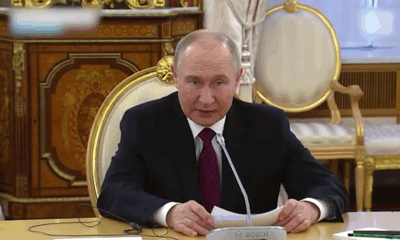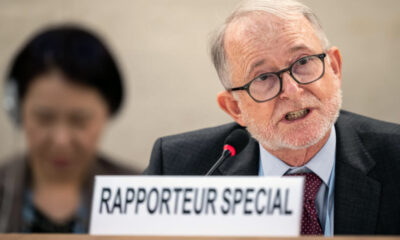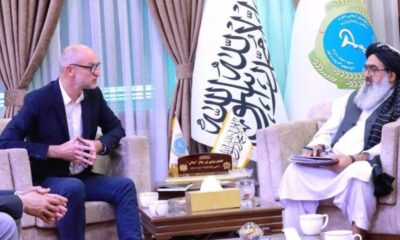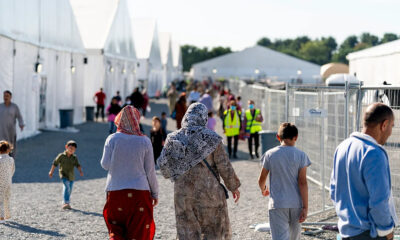Latest News
SIGAR warns of continued threat – with or without peace
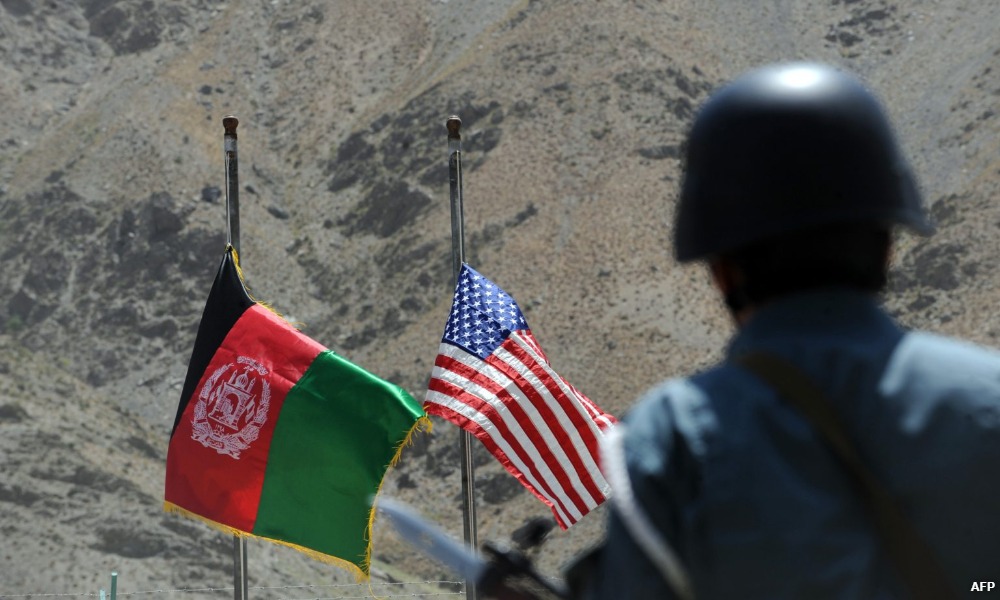
The United States’ Special Inspector General for Afghanistan Reconstruction (SIGAR) warned on Wednesday night that security remains the most crucial and enduring high-risk area for Afghanistan and with or without a sustainable peace agreement and nationwide ceasefire, Afghanistan will likely continue to be threatened by multiple violent-extremist organizations.
Presenting SIGAR’s 2021 High-Risk List to US Congress, John F. Sopko, Special Inspector General for Afghanistan Reconstruction, said any political agreement risks subordinate groups going rogue, possibly manifesting as another insurgency or insecurity from criminal gangs or networks.
These issues could become even more pronounced if US forces are no longer in country to provide counterterrorism support and to train, advise, and assist Afghanistan’s security institutions, his report stated.
He said that in keeping with SIGAR’s statutory mandate to promote economy, effectiveness, and efficiency, the High-Risk List identifies serious risks to the United States’ $143 billion reconstruction effort in Afghanistan.
He also pointed out that this report is issued at a time when peace negotiations between the Afghan government and the Taliban are stalled amid continuing high levels of violence, putting the reconstruction effort at greater risk than ever before.
“As we note in this report, whether or not the United States continues to withdraw its troops from Afghanistan pursuant to last year’s withdrawal agreement with the Taliban, the new Administration and Congress will have to decide whether and to what extent reconstruction will continue.
“Although Afghanistan’s leadership have often stated that their goal is self-reliance, Afghanistan today is nowhere near to being self-reliant – especially in funding its government operations, including military and police – from its own resources.
“And, as highlighted in our report, reconstruction aid helps keep Afghanistan from reverting to a terrorist safe haven,” Sopko said.
He stated that “today the gains from our nation’s investment in Afghanistan’s reconstruction face multiple threats: continued insecurity, uncertain post-peace settlement funding, the challenge of reintegrating fighters, endemic corruption, lagging economic growth and social development, threats to women’s rights, the illicit narcotics trade, and inadequate oversight by donors.”
He also pointed out that the level of violence has increased, including not only attacks against Afghan security forces, but also bomb attacks on civilians and targeted assassinations of mid level officials, prominent women, and journalists.
In addition, the COVID-19 pandemic is overwhelming Afghanistan’s health sector and having a severe impact on its economy and people, he stated.
Sopko said this report is “intended to provide an independent and sober assessment of the various risks now facing the Administration and Congress as they seek to make decisions about the future of the U.S. mission in Afghanistan.”
The High-Risk List focuses on elements of the US reconstruction effort in Afghanistan that are essential to success; at risk of failure due to waste, fraud or abuse; and subject to the control or influence of the US government.
Key Factors
By using these criteria, SIGAR identified eight high-risk areas:
• Increasing Insecurity
• Uncertain Funding for a Post-Peace Settlement
• The Need to Reintegrate Ex-Combatants
• Endemic Corruption
• Lagging Economic Growth and Social Development
• Illicit Narcotics Trade
• Threats to Women’s Rights
• Inadequate Oversight
The report stated that while security remains the most crucial and enduring high-risk area for Afghanistan because the Taliban have not significantly changed their tactics, high levels of violence, or political objectives, and terrorist groups in Afghanistan such as Islamic State-Khorasan (IS-K/Daesh) and al-Qaeda remain in the country.
“With or without a sustainable peace agreement and nationwide ceasefire, Afghanistan will likely continue to be threatened by multiple violent-extremist organizations.
“Any political agreement risks subordinate groups going rogue, possibly manifesting as another insurgency or insecurity from criminal gangs or networks.
“These issues could become even more pronounced if US forces are no longer in country to provide counterterrorism support and to train, advise, and assist Afghanistan’s security institutions,” the report read.
It also noted that the long-term danger for Afghan women is that Afghan peace negotiations break down, plunging the country into worse violence. “Women and girls suffer not only loss of life, injury, disability, and mental trauma, but also the loss of male breadwinners, increasingly desperate poverty, the social stigma and discrimination that accompany widowhood and permanent disability, and reduced access to basic services.”
The SIGAR report also noted that there are between 55,000 and 85,000 Taliban fighters and that depending on the terms of a peace agreement, some Taliban fighters will be integrated into the Afghan National Defense and Security Forces; while others will need to transition to productive noncombatant status in civil society.
According to SIGAR, Afghanistan remains exceptionally reliant on foreign assistance – specifically with donor grants that total at least $8.6 billion per year which currently finances almost 80 percent of Afghanistan’s $11 billion in public expenditures.
“Afghanistan remains exceptionally reliant upon foreign assistance, creating both an opportunity for donors to influence events there as foreign troops depart and risks to a potential peace if they reduce assistance too much, too fast, or insist on conditions that cannot be achieved by the parties to the conflict,” the report read.
SIGAR also warned that the Afghan government’s limited fiscal capacity may be inadequate to sustain the infrastructure, such as roads, reliable power generation, and economic supply chains.
“The Afghan government’s lack of financial sustainability is an issue affecting all high-risk areas identified by SIGAR,” the report read.
SIGAR also noted that the detrimental effects of the illegal drugs trade in Afghanistan does not only affect the health system but also helps fund insurgents, foster corruption, and provoke criminal violence.
“Even in the midst of the COVID-19 pandemic, Afghanistan’s opium economy has remained resilient. The United Nations Office on Drugs and Crime reported that Afghanistan’s 2020 opium-poppy harvest was largely uninterrupted by COVID-19,” the report read.
Another key risk factor was government’s failure to effectively address systemic corruption in Afghanistan.
SIGAR stated the Afghan government has taken limited steps to curb systemic corruption, but more tangible action is required.
“The Afghan government often makes “paper” reforms, such as drafting regulations or holding meetings, rather than taking concrete actions that would reduce corruption, like arresting or enforcing penalties on powerful Afghans.”
Sopko meanwhile stated that regardless of the course chosen by the US, SIGAR, as the largest oversight presence in Afghanistan and the only one with whole-of-government authority, will remain the best US defense against the waste, fraud, and abuse of US taxpayer funds in Afghanistan.
Latest News
Uzbek and EU envoys meet, discuss Afghanistan
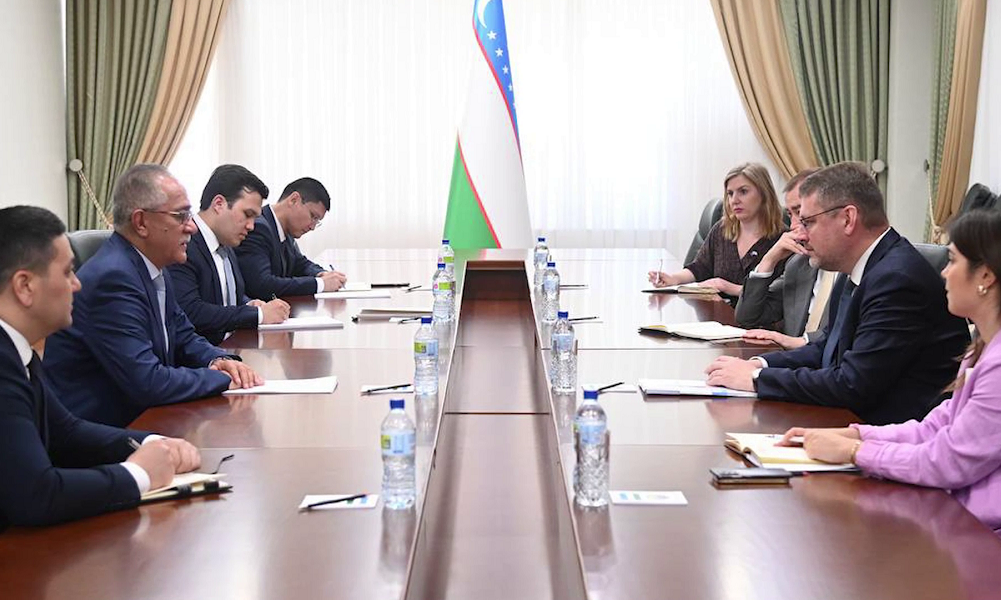
Uzbekistan’s Ministry of Foreign Affairs says the special representatives of Tashkent and the European Union have held discussions on key issues related to regional security and the current situation in Afghanistan.
According to a statement issued by the Uzbek foreign ministry, Ismatulla Irgashev and Eduards Stiprais also discussed prospects for deepening cooperation between Uzbekistan and the EU.
Stiprais, the EU Special Representative for Central Asia, expressed his interest during the meeting in holding constructive and systematic dialogues on issues concerning the situation in Afghanistan, the statement read.
He agreed to support regular consultations alongside Uzbekistan’s special representative.
Previously, special representatives from Uzbekistan and the EU had also discussed the situation in Afghanistan, the international community’s efforts to prevent a humanitarian crisis there, and the potential use of the Termez International Transport and Logistics Hub for delivering humanitarian aid.
Latest News
Putin says Moscow will continue effective cooperation with Islamic countries

Russian President Vladimir Putin says despite the difficult international situation, Moscow will continue its effective cooperation with Islamic countries.
Putin made this statement in his opening message to the 16th International Economic Forum “Russia–Islamic World,” also known as the Kazan Forum.
He added that Russia will expand its relations with these countries in various sectors.
“For centuries, our multi-ethnic country has embraced broad cooperation with the Islamic world, and today, despite the challenges in international cooperation, we continue to effectively and consistently expand our economic, scientific, educational, humanitarian, and interregional ties,” he stated.
The Kazan Forum, a major global platform for dialogue between Russia and the Islamic world, is being held in Kazan, Russia, from May 13 to May 18.
Officials from the Islamic Emirate have also been invited to attend the forum, and a delegation from Afghanistan is expected to participate.
Meanwhile, several analysts view this event as a valuable opportunity for Afghanistan to enhance engagement and cooperation with the international community, particularly with countries of the Commonwealth of Independent States (CIS).
Although Russia has not officially recognized the Islamic Emirate, in recent months it has reopened diplomatic channels and cooperation with Afghanistan, including suspending the designation of the IEA as a banned organization.
Latest News
Richard Bennett ‘shocked’ by explosive testimony of ex-British soldiers in killings of Afghans
The IEA said that foreign forces committed many war crimes in Afghanistan while stationed in the country over 20 years.
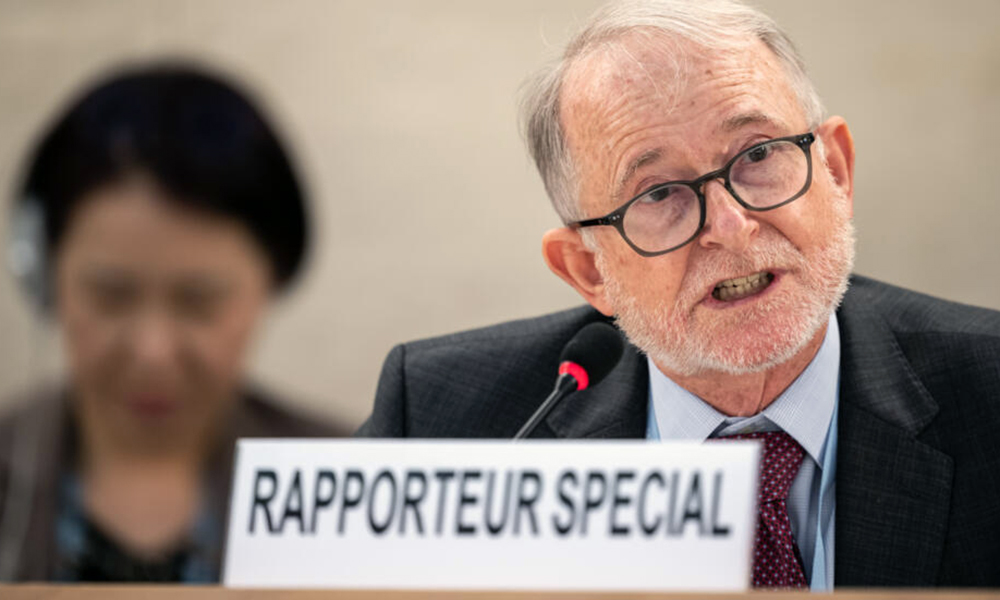
Richard Bennett, the UN Special Rapporteur on Human Rights in Afghanistan, has called for justice to be served over the unlawful killings by UK special forces in Afghanistan.
In a post on X on Monday, Bennett said the revelations in a recent investigation by BBC’s Panorama were “shocking”.
The Islamic Emirate also responded to the news and stated that foreign forces committed many war crimes in Afghanistan while stationed in the country over 20 years.
The IEA says these new confessions prove the extent of what transpired.
The BBC report featured testimony by several ex-soldiers on the unlawful killings while British troops were in Afghanistan.
These ex-soldiers told how British troops killed unarmed civilians in their sleep and executed blindfolded detainees.
One former soldier who served in Afghanistan recalled an incident in which troops “handcuffed a young boy and shot him. He was a child, not even close to fighting age.” He added that the killing of detainees by British special forces “became routine.”
Allegations of war crimes involving British forces in Afghanistan have circulated for years, and formal investigations are ongoing.
However, these inquiries and investigations by the BBC have still not led to any charges being brought against the alleged culprits or any meaningful justice for the victims.
-

 Regional5 days ago
Regional5 days agoIndia says military stations attacked by Pakistan drones and missiles
-
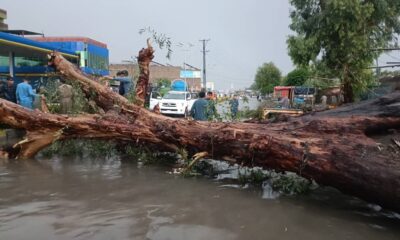
 Latest News5 days ago
Latest News5 days agoOne dead, dozens injured as powerful storm strikes Jalalabad, Afghanistan
-

 Latest News4 days ago
Latest News4 days agoEx-Afghan deputy speaker Qadeer back in Kenyan court for criminal case
-
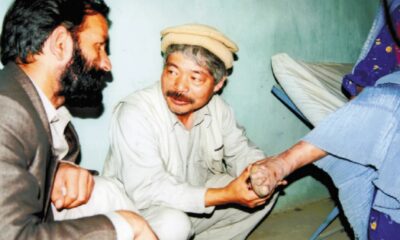
 Health5 days ago
Health5 days agoJapanese charity Peshawar-Kai to resume leprosy treatment in Afghanistan
-

 Sport5 days ago
Sport5 days agoIndia suspends Indian Premier League T20 cricket tournament
-

 Latest News4 days ago
Latest News4 days agoPakistan says India launched attack on Afghanistan, India denies
-

 Latest News4 days ago
Latest News4 days agoMCC Chief: Afghan cadres sent to China for AI training
-

 World3 days ago
World3 days agoUS offers to help India and Pakistan start talks, G7 also urges dialogue


